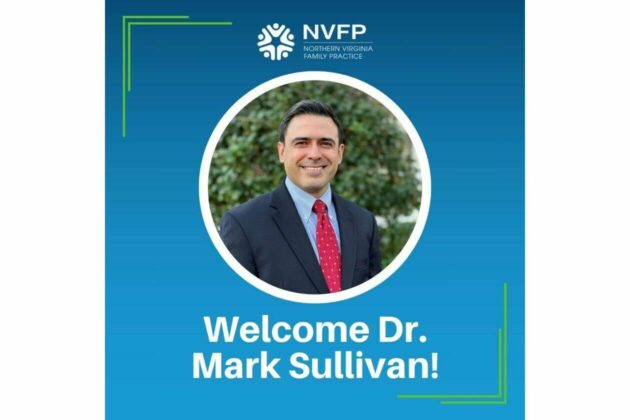This is a sponsored column by attorneys John Berry and Kimberly Berry of Berry & Berry, PLLC, an employment and labor law firm located in Northern Virginia that specializes in federal employee, security clearance, retirement and private sector employee matters.
By John V. Berry, Esq.
The U.S. Supreme Court, on June 15, 2020, by a 6-3 vote, in the case of Bostock v. Clayton County, ruled that federal law protects gay and transgender workers (or applicants) from employment discrimination. A copy of the new landmark Supreme Court case is provided here.
In short, the new court case found that “an employer who fires an individual merely for being gay or transgender violates Title VII” of the Civil Rights Act.” This is a landmark decision, the extent of which will evolve in the years to come as other courts start hearing these types of employment discrimination cases.
Why is the Ruling Important?
The major reason why the Supreme Court decision is so important is that there have been few protections against sexual orientation discrimination (even fewer for transgender discrimination) under various state laws. Less than one-half of the states have laws banning sexual orientation or gender identity discrimination (Virginia enacted one recently).
For the first time, employees in all 50 states have protections from this type of discrimination. This ruling makes it just as illegal under the Civil Rights Act of 1964 for an employer to discriminate against someone for being gay or transgender as it does for employers to discriminate against employees based on race, sex or religion.
Justice Neil Gorsuch, in drafting the Supreme Court’s decision, reasoned that while the Civil Rights Act was passed in 1964, the language used at the time by Congress had many unintended consequences at the time which have come to light over the past 56 years. Justice Gorsuch believed that the language in the 1964 law applied to gay and transgender employees:
“In Title VII, Congress adopted broad language making it illegal for an employer to rely on an employee’s sex when deciding to fire that employee. We do not hesitate to recognize today a necessary consequence of that legislative choice: An employer who fires an individual merely for being gay or transgender defies the law.”
Three Justices disagreed, including Samuel Alito, Clarence Thomas and Brett Kavanaugh.
What does the Ruling Mean?
The new Supreme Court ruling means that employees (or applicants) who are fired, not hired, or otherwise discriminated against at work because they are gay or transgender, will be able to file equal employment opportunity (EEO) complaints and sue their employers in federal court for illegal discrimination.
The Equal Employment Opportunity Commission is currently revising their website to account for this new decision and their role in enforcing the decision of the Supreme Court in the 50 states.
Because the Civil Rights Act applies to employers with 15 or more employees, there remains a gap in protections for gay and transgender employees in the 25 or so states without state law protections. There is also the hope that some states that don’t specifically protect gay or transgender employees from discrimination may interpret their own civil rights laws to now include such protections taking a cue from the U.S. Supreme Court.
In short, it is the first federal step in protecting gay and transgender employees from employment discrimination. It is also long overdue.
Contact Us
If you are in need of employment law legal representation or advice, please contact our office at 703-668-0070 or through our contact page to schedule a consultation. Please also visit and like us on Facebook or Twitter.
Recent Stories

Unlike our competitors, Well-Paid Maids doesn’t clean your home with harsh chemicals. Instead, we handpick cleaning products rated “safest” by the Environmental Working Group, the leading rating organization regarding product safety.
The reason is threefold.
First, using safe cleaning products ensures toxic chemicals won’t leak into waterways or harm wildlife if disposed of improperly.
Second, it’s better for you and your family. Fragrant chemicals in surface cleaners can expose you to a similar amount of pollutant particles as a busy city road, New Scientist reported.

Northern Virginia Family Practice (NVFP), known for its comprehensive concierge healthcare, is thrilled to introduce Mark Sullivan, MD as the newest member of its family medicine team.
Dr. Sullivan brings a wealth of experience in family medicine, underpinned by a passion for delivering personalized, patient-centered care. He has a distinguished background in managing various medical conditions, emphasizing preventive care, health education and chronic disease management. Dr. Sullivan is adept at employing the latest medical research and technologies to enhance patient outcomes.
Beyond his medical expertise, Dr. Sullivan is committed to the well-being of his community, demonstrating this through his active engagement in local health initiatives and educational programs. His approach to medicine is holistic, focusing on integrating physical, mental and emotional health and patient education to achieve optimal patient wellness.
Dr. Sullivan is now accepting new patients at their newly established Arlington office at 2445 Army Navy Drive, Arlington, VA, 22206. The office, known for its patient-friendly amenities and state-of-the-art medical facilities, continues to provide the exceptional, personalized care NVFP is known for in its newly upgraded Arlington location.
Fascination
Goth-Dark Wave Dance Party with Belly Dancing and Drag King Show.
Part of OurAlternative Thursdays for Alternave People with Alternative Lifestyles
Performances By
Belladonna and the Nightshades
Ya Meena
Drag King - Ken Vegas
DJ Michelle Guided
National Chamber Ensemble – Concerto Celebration
We invite you to join us for an extraordinary evening of music at our Season Finale, “Concerto Celebration”! Enjoy several masterworks as NCE performs two famous concertos in an intimate chamber music setting, opening with a delightful work by Chevalier








